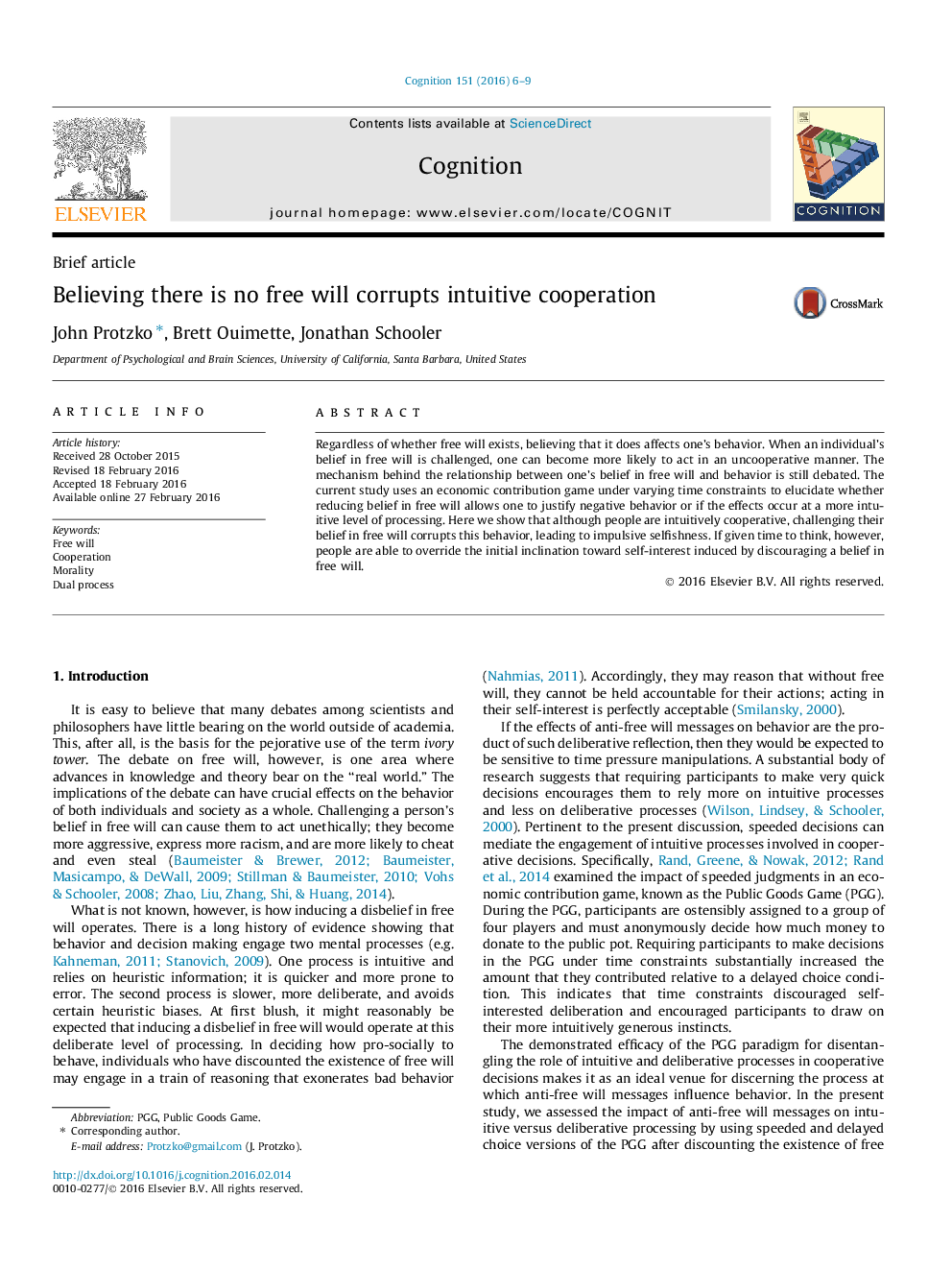| Article ID | Journal | Published Year | Pages | File Type |
|---|---|---|---|---|
| 926413 | Cognition | 2016 | 4 Pages |
Regardless of whether free will exists, believing that it does affects one’s behavior. When an individual’s belief in free will is challenged, one can become more likely to act in an uncooperative manner. The mechanism behind the relationship between one’s belief in free will and behavior is still debated. The current study uses an economic contribution game under varying time constraints to elucidate whether reducing belief in free will allows one to justify negative behavior or if the effects occur at a more intuitive level of processing. Here we show that although people are intuitively cooperative, challenging their belief in free will corrupts this behavior, leading to impulsive selfishness. If given time to think, however, people are able to override the initial inclination toward self-interest induced by discouraging a belief in free will.
